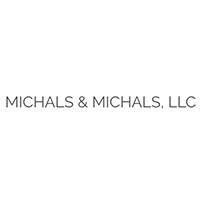 Spring Lake Bankruptcy & Debt Lawyers, Michigan
Spring Lake Bankruptcy & Debt Lawyers, Michigan
Sponsored Law Firm
-
 x
x

Click For More Info:
-
Marrs & Terry, PLLC
6553 Jackson Road Ann Arbor, MI 48103» view mapBankruptcy & Debt Personalized, Efficient Counsel
Marrs & Terry, PLLC have been helping individuals face a variety of legal challenges, including bankruptcy, estate planning and administration, and family law.
800-862-7221
Sponsored Lawyers
1-10 of 18 matches
Estate, Tax, Bankruptcy & Debt
I've been practicing law for 40 years and have found that our clients truly appreciate the time and effort we put into every aspect of the legal matters entrusted to us. We're here to help you solve your legal problems and that's something we don't take lightly. At Cotner Law Offices we are here to listen to your needs and zealously help you accomplish your goals in any way we can within the bounds of the law. We know that legal representation can be tough on your wallet, and we've got a number of different options that you can review to keep costs as low as possible, including telephone consultations.
(more)Accident & Injury, Bankruptcy, Business, Estate
Spiro Michals Attorney at Law is a founding Partner of the firm of Michals & Michals, LLC and heads the General Law division of the firm. He practices in the areas of Real Estate, Wills and Estates, Personal Injury, Bankruptcy and Contracts. In addition to those areas of practice listed above, Spiro Michals Attorney at Law currently serves as Attorney for numerous corporations. He previously served as Law Clerk for the Monmouth County Prosecutors Office. His extensive experience in real property and personal injury matters has garnered him many notable clients such as West Shore Medical, Jersey Shore Grille and others. Spiro Michals Attorney at Law has also successfully tried many cases before the Federal Court as well as State courts. Spiro Michals Attorney at Law has endeavored to support the community for many years by supplying pro bono legal assistance to low income clients.
(more)



 Tricia Terry Ann Arbor, MI
Tricia Terry Ann Arbor, MI AboutExperienced Michigan Lawyer
AboutExperienced Michigan Lawyer Articles
Articles


